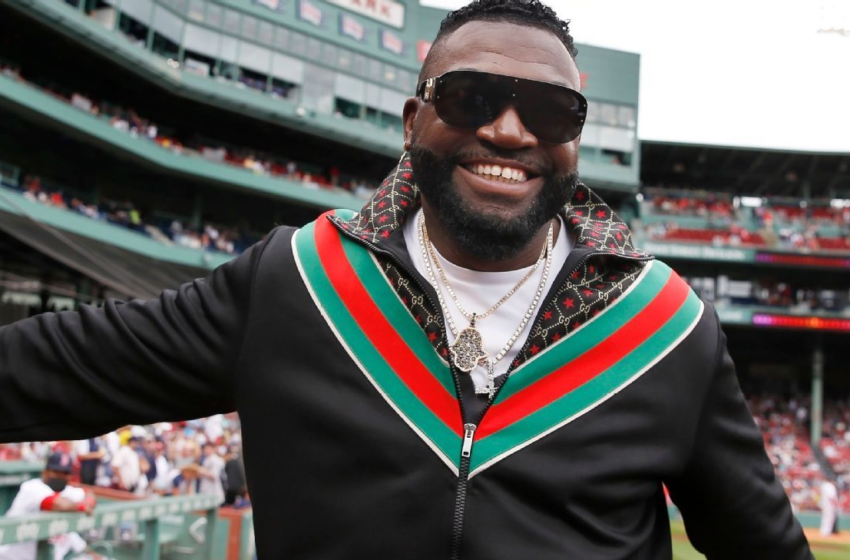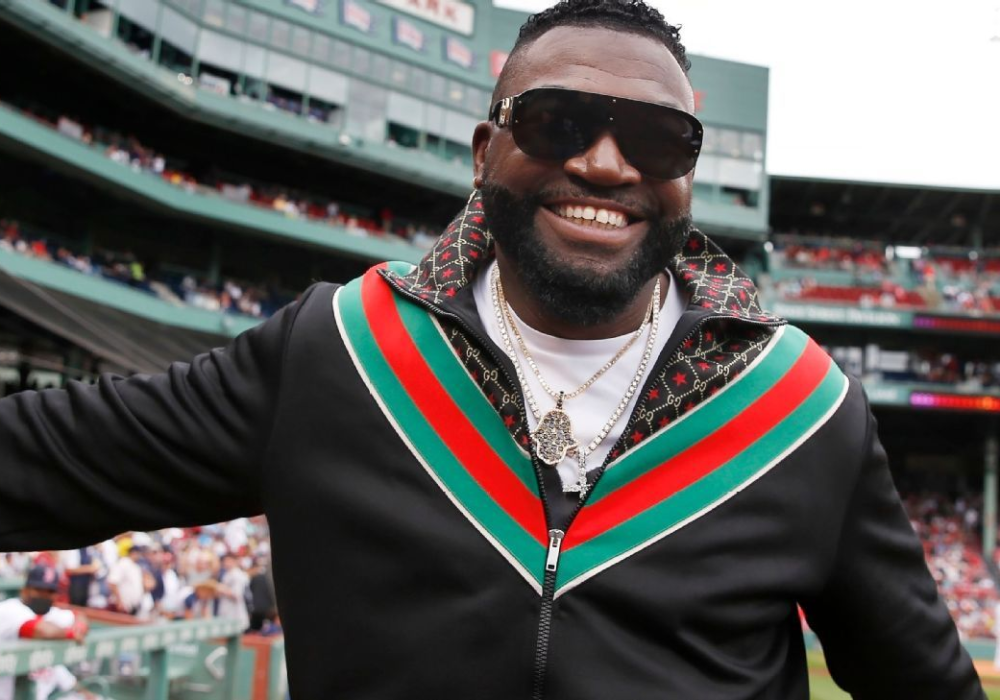With the process still tainted by the steroid era, David Ortiz was the lone player to gain induction to the Baseball Hall of Fame this year, while players like Barry Bonds and Roger Clemens were shut out.
“Big Papi” was the only player to clear the 75 percent threshold for induction, according to results of this year’s voting by the Baseball Writers’ Association of America. Ortiz was named on 307 ballots (77.9 percent) in his first year of eligibility.
“I am truly honored and blessed by my selection to the Hall of Fame — the highest honor that any baseball player can reach in their lifetime,” Ortiz said in a statement released by the Boston Red Sox. “I am grateful to the baseball writers who considered my career in its totality, not just on the statistics.”
Bonds, baseball’s all-time home run leader (66 percent), 354-game winner Roger Clemens (65.2 percent), 600-homer-club member Sammy Sosa (18.5 percent) and longtime ace pitcher Curt Schilling (58.6 percent) were in their 10th and final year of eligibility in the annual BBWAA balloting.
Bonds, Sosa and Clemens have gone from posters on fans walls to the poster boys for the performance-enhancing drug era. From court dramas to testimony in front of Congress, their PED histories have been well documented. Based on their baseball contributions, they are sure-fire first-ballot Hall of Famers, but voters prefer that they remain in the PED shadows.
Ortiz is a different story, despite his own PED suspicions. A 2009 New York Times story reported that Ortiz was among 104 players who tested positive for performance-enhancing substances during a round of tests conducted in 2003. Those results were supposed to remain confidential and were done to see if the league had reached a threshold to conduct regular testing.
Ortiz has long denied that he used banned substances, and in 2016, commissioner Rob Manfred said the tests in question were inconclusive because “it was hard to distinguish between certain substances that were legal, available over the counter, and not banned under our program.”
Manfred added that during subsequent testing Ortiz “has never been a positive at any point under our program.”
As for the last-chance candidates, Sosa’s support never approached the threshold for election, but the cases of Bonds and Clemens were more divisive among the selectors. Both climbed over the 50 percent mark in 2017 only to see their support plateau in recent seasons.
“My family and I put the Hall of Fame in the rear view mirror 10 years ago. I didn’t play baseball to get into the Hall of Fame. I played to make a generational difference in the lives of my family, then focus on winning championships while giving back to my community and the fans as well,” Clemens said in a statement. “It was my passion. I gave it all I had, the right way, for my family and for the fans who supported me. I am grateful for that support.”
The case of Schilling was an outlier in the history of the voting, as most candidates who have reached the 70 percent mark in the voting have eventually been elected. Schilling’s on-field case is strong, with 216 career wins and three World Series titles, and his percentage climbed above 70 percent in the balloting in both 2020 and 2021.
However, a history of incendiary comments and social media posts appear to have been Schilling’s undoing. Those included a since-deleted 2016 tweet in which Schilling appeared to endorse the lynching of journalists. After he fell short last year, Schilling released a statement asking to be removed from the ballot.
The Hall decided against removing Schilling, but nevertheless his support waned in his final season of eligibility, as he dropped to fifth overall in the final tally.
The hotly debated cases for Bonds, Clemens, Sosa and Schilling will move to a new arena: the Hall of Fame’s Today’s Game era committee, The Hall’s era committees are comprised of players, executives and media who are charged with evaluating overlooked candidates. The Today’s Game committee is next scheduled to convene during the 2022 winter meetings in a few months.
Among first-time eligibles on this year’s ballot, All-Star infielder Alex Rodriguez received just 34.3 percent of the vote despite a dazzling career that saw him finish with 696 home runs and 2,086 RBI, totals which both rank fourth all-time in their respective categories. Rodriguez was suspended for the entire 2014 season for violating baseball’s policy against performance-enhancing drugs.
Phillies shortstop Jimmy Rollins (9.4 percent) was the only other first-time eligible beyond Ortiz and Rodriguez to draw enough support to remain on the ballot.
Longtime third baseman Scott Rolen finished with 63.2 percent, which was fourth overall in the final rundown. Rolen’s support has steadily increased in recent years, putting him in an excellent position to be selected perhaps as soon as the next cycle of balloting. Others who received at least 50 percent support included first baseman Todd Helton (52 percent) and closer Billy Wagner (51 percent).
Ortiz, widely known for his gregarious personality and endearing nickname, became the second career designated hitter to be selected via the writers’ balloting. Seattle Mariner great Edgar Martinez became the first when he was elected in 2019. A member of three World Series-winning teams in Boston, Ortiz hit 541 career home runs and added 17 more while putting together a celebrated postseason resume.
“For a young boy from Santo Domingo, I always dreamed of playing professional baseball,” Ortiz said through the Red Sox. “Thanks to the encouragement of my father, Leo, and my mother, Angela Rosa, I knew from my earliest days at Estudia Espaillat High School in the Dominican Republic that I had the opportunity to pursue my dream of playing in the big leagues.”
Ortiz will become the second Hall of Famer from 2004 Red Sox, who famously broke Boston’s 86-year championship drought by winning that season’s World Series, joining pitcher Pedro Martinez.
“We broke the curse and then got two more championships before I retired in 2016,” Ortiz said in the statement. “What a sweet and beautiful journey it has been.”
Ortiz will enter the Hall during the induction ceremony at the Clark Sports Center in Cooperstown, N.Y., on July 24. He will join six players selected by a pair of era committees last month, including Brooklyn Dodgers great Gil Hodges, Twins slugger Tony Oliva, longtime White Sox star Minnie Minoso, pitcher Jim Kaat, Black baseball pioneer Bud Fowler and Negro League legend and ambassador Buck O’Neil. All but Ortiz, Kaat and Oliva will be honored posthumously.
In addition, late broadcaster Jack Graney will be honored as the Ford C. Frick award winner for excellence in broadcasting, while ESPN’s Tim Kurkjian will be recognized as this year’s winner of the BBWAA Career Excellence Award for meritorious contributions to baseball writing.
With Ortiz standing as the lone winner from this year’ BBWAA balloting, the writers have now elected just one player total over the last two cycles. The sudden drought comes on the heels of a fertile period for inductees, which saw the writers select 22 players during the period from 2014 to 2020.












